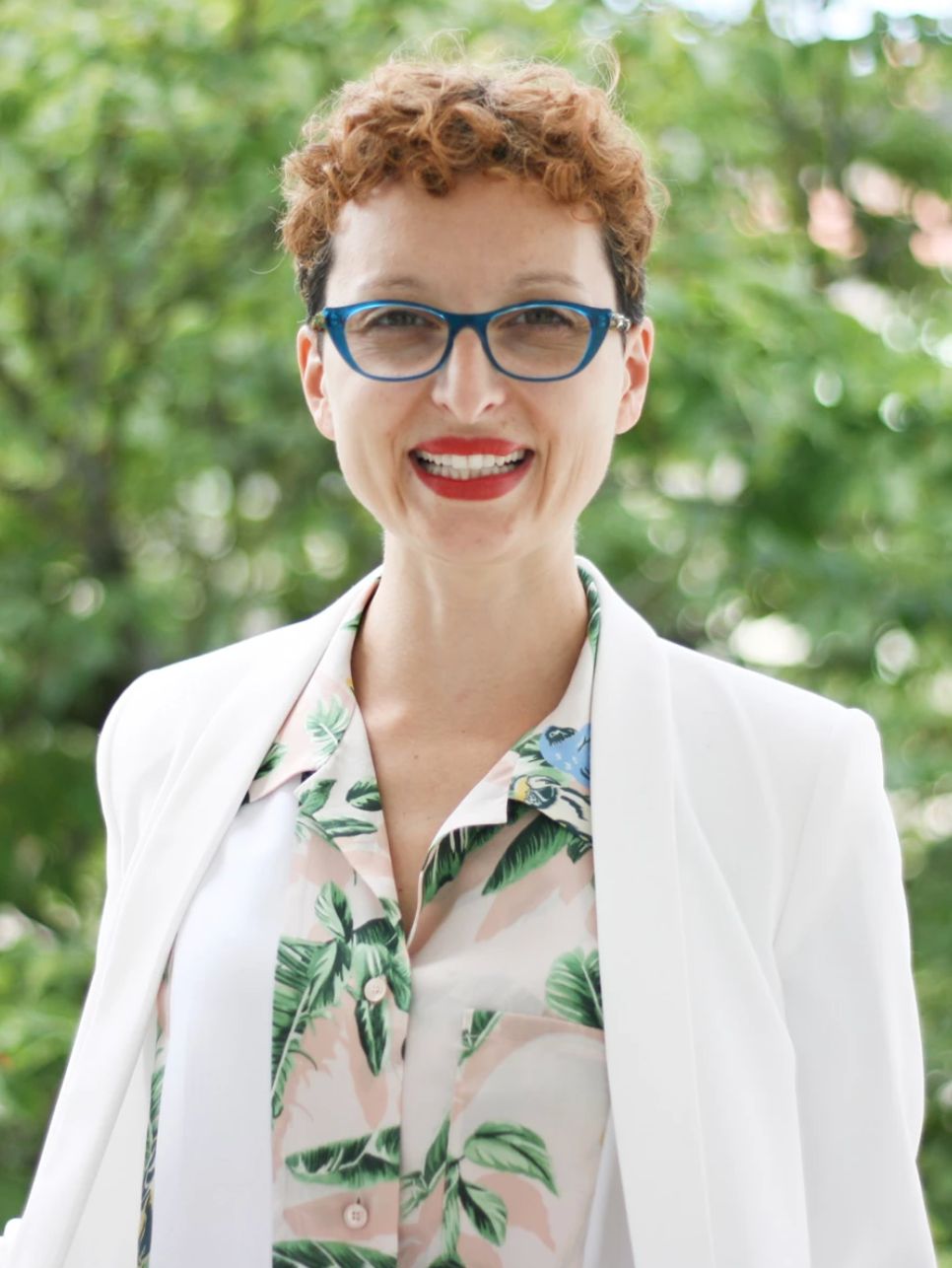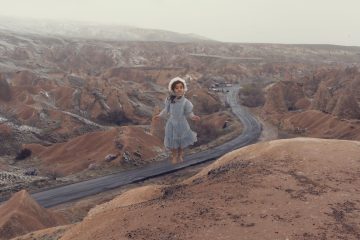
Curator Lucia Pietroiusti chats about transporting an award-winning opera set at the seaside to south London.
Deptford is getting a beach. And no, it’s not a strip of mud beside some water, dotted with rusty shopping trolleys. But it does bring an environmental message of its own.
Sun and Sea – a climate change opera – will be hosted by the Albany in Deptford for two and a half weeks from 23 June. The performance space will be filled with sand, converting it into an indoor beach. Expect to see performers in swimwear and beach attire lying on towels, and when they’re not singing, visitors on the upper level will observe them reading their books, playing with beach balls, or even eating their packed lunches – just like you would see on any other beach. The looping performance cycle lasts for around an hour, and you can join it at any time.

Sun & Sea. Credit: Elon Shoenholz, Los Angeles, October 2021.
While the songs reflect everyday beach activities like applying sunscreen “Hand it here, I need to rub my legs…, ‘cause later they’ll peel and crack, and chap” and complaining about other beach goers “What’s wrong with people – they drink beer in the heat of the day! They spill it and it seeps into the sand, then it smells like a slum-hole!”, it also looks at environmental issues like plastic in the sea “Jellyfish dance along in pairs with emerald-coloured bags, bottles and red bottle-caps. O the sea never had so much colour!” and the changing ecology “Our bodies are covered with a slippery green fleece, our swimsuits are filling up with algae”.
This may start to be sounding familiar and it should. In 2019, Sun and Sea won the Golden Lion award at the Venice Biennale and was the must-see work, with visitors queuing around the block for hours, as the word got out and more and more people clamoured to see it.
It was created by a team of three: Rugilė Barzdžiukaitė – a theatre and film director, Vaiva Grainytė – a writer and a poet, and Lina Lapelytė – a performance artist and a composer. Working with Lucia Pietroiusti – then Curator of General Ecology at the Serpentine – the artists reworked the original Lithuanian piece into a durational performance, adapting some of the librettas, and translating them into English.
The forthcoming London production is co-presented by LIFT, the Albany and Serpentine as part of LIFT 2022 (London’s biennial international festival of theatre), We Are Lewisham (this year’s Mayor’s London Borough of Culture), and Back to Earth (the Serpentine’s “long-term, interdisciplinary, artistic programme responding to the urgent climate crisis”). Sun and Sea is one part of the multi-site Back to Earth exhibition which opens on 22 June, featuring works by Dineo Seshee Bopape, Brian Eno, Cooking Sections, Alexandra Daisy Ginsberg and Formafantasma among others.
We spoke to curator Lucia Pietroiusti to learn more about the work.

Lucia Pietroiusti. Photo by Joginte Bucinskaite.
How does the London production differ from the one in Venice in 2019? Has anything changed?
We’re presenting the same work as it was shown in Venice, though a few details have been changed in the libretto to adapt to small differences in the core cast throughout the tour. The piece is still a durational one, looping a one-hour performance into (in London) a four-hour block, so the experience is that of an “infinite” beach… in Venice our days were eight hours long, but that proved very much a challenge! What mainly changes is the beach itself – the piece is never exactly the same, because people just do what they’d normally do on the beach.
How did you cast the performers for the London production?
The singers are still the core cast from Venice and the tour. For the beachgoers and choir, The Albany, LIFT, and Serpentine put out a call for participants, reaching out to the local Deptford/Lewisham residents, as well as further afield.
Why did you choose to show the work in Deptford?
The Albany has the exact right qualities for the viewing experience from above that the piece requires. Furthermore, The Albany has a rich and important history of community-led, grassroots political engagement and we were really interested in bringing this into dialogue with the piece.
What do you see as the social relevance of the work?
For me, it displays these moments of everyday life, the songs are songs of the everyday. There’s nothing particularly remarkable about the characters themselves, nor is there about the placements of them on the beach. There’s something incredibly everyday about the whole thing.
To replace the stage, which was the construct itself with the completely unconstructed self [of a beach], was for me a work of genius and it allowed for a kind of emotional or affective experience that the audience seemed to have had that I feel the work really has the potential to provoke or somehow let emerge, which is a very layered experience. So you can go in and have an affective relationship with the singing without necessarily following the librettas. That’s where the emergence of the discourse around climate change is.
Sun and Sea runs 23 June – 10 July, tickets can be found here.
Back to Earth runs 22 June – 18 September, tickets can be found here.

